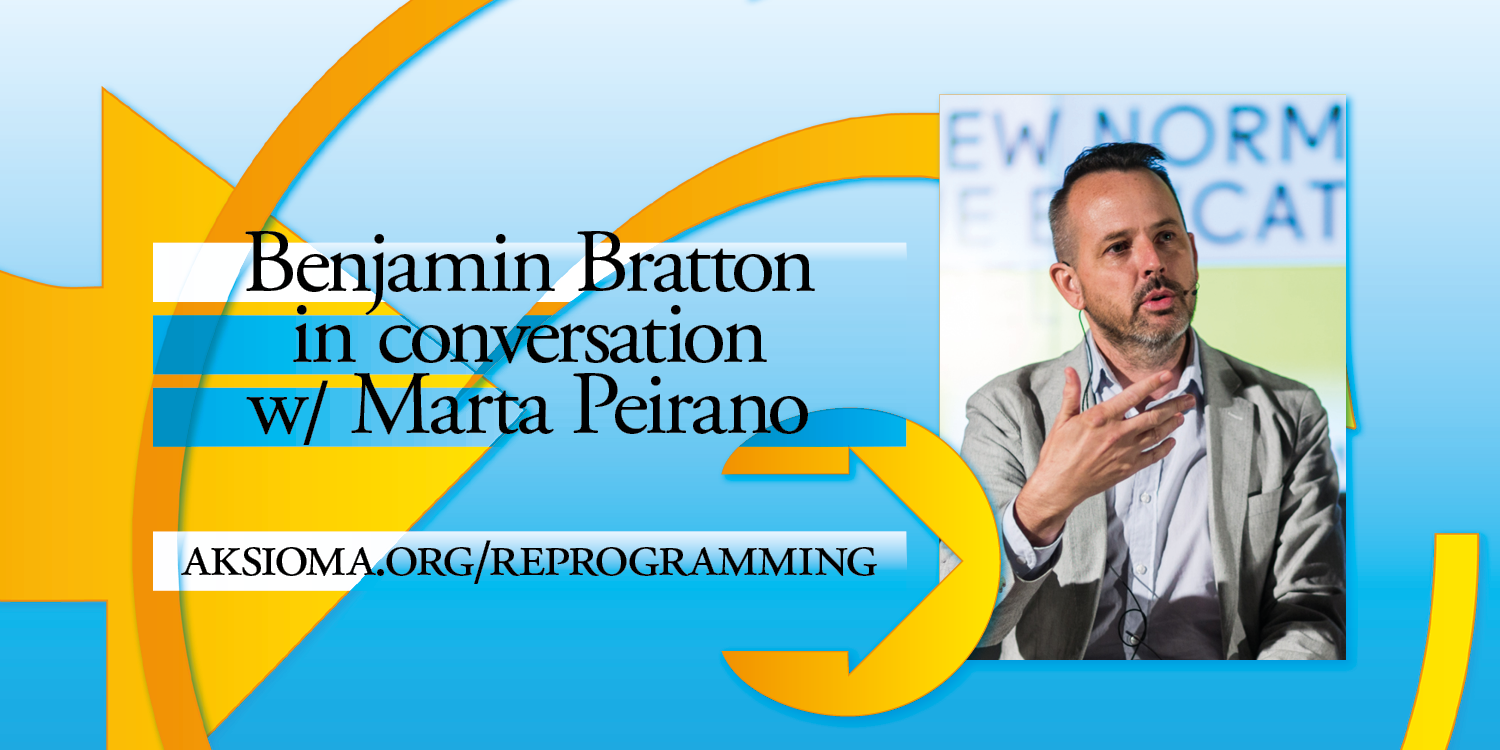We are in a hurry; even 2030 might be too late. We need to fundamentally transform our cities, technologies and ecosystems to ensure our planet keeps supporting earth-like life. But what does that look like? Our apocalyptic, post-colonial fantasies obscure our vision. We dream of thriving under the impossible conditions of distant planets but fail to imagine establishing better ones on earth. In The Stack, Benjamin Bratton envisioned a model for a planetary scale computation, then used it as a tool for a new planetary redesign project, the Terraforming – not of Mars but of Earth. We will discuss the technical, social and political infrastructures that are required for such a project. “A task of preventing one future,” he writes, “so that another might, with luck, instead come to pass”.
Benjamin Bratton is the director of the design research program and think tank called The Terraforming at the Strelka Institute of Media, Architecture and Design in Moscow. He is also a professor of Visual Arts at the University of California, San Diego, and teaches Digital Design at The European Graduate School in Switzerland and is Visiting Faculty at the Southern California Institute of Architecture in Los Angeles.
His book The Stack: On Software and Sovereignty outlines a new geopolitical theory for the age of global computation and algorithmic governance. It was followed by The New Normal and The Terraforming, the thought catalogues for his first two research programs at Strelka. His most recent book is The Revenge of the Real: Politics for a Post-Pandemic World.
Thinkers curated and conducted by Marta Peirano.
